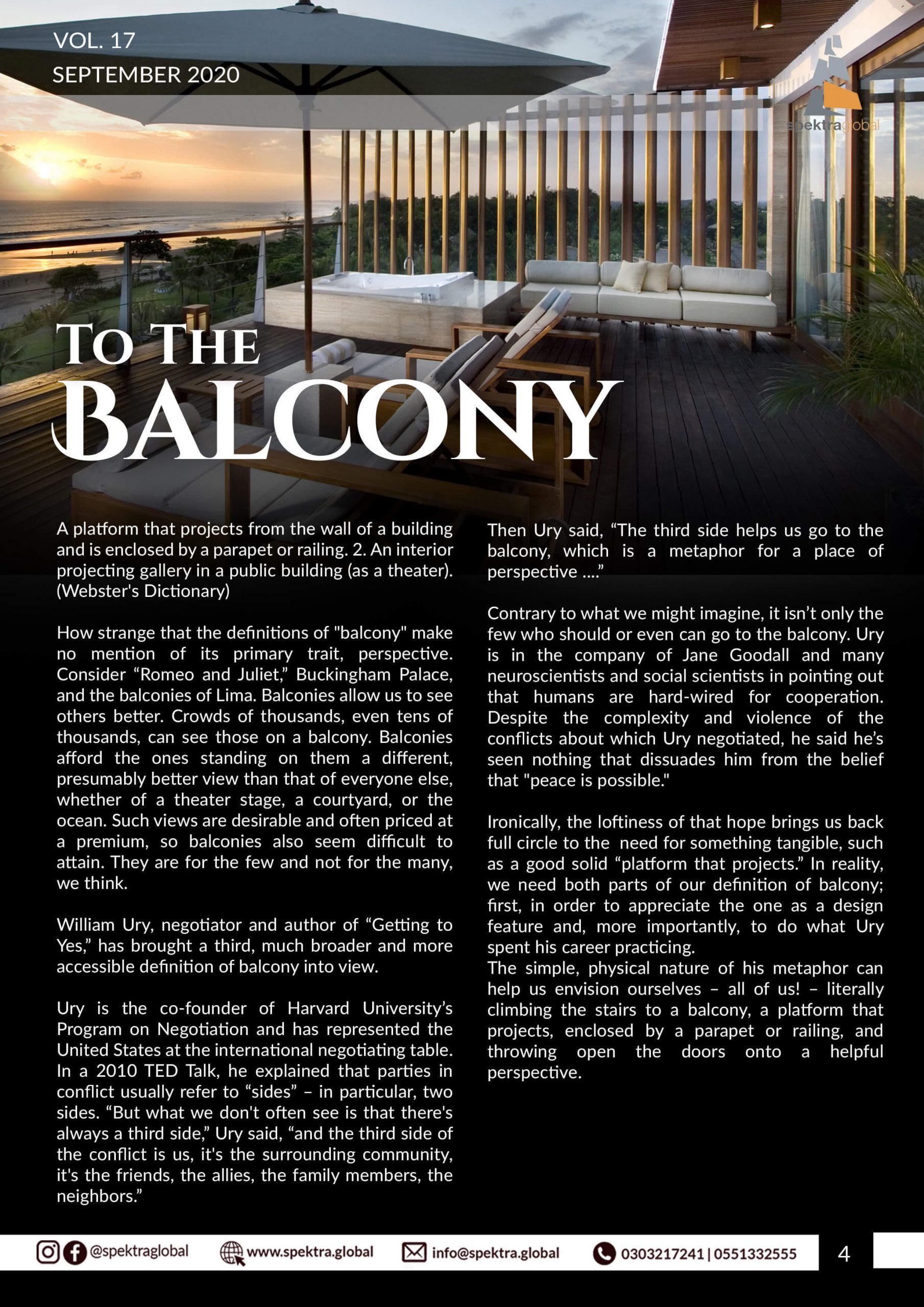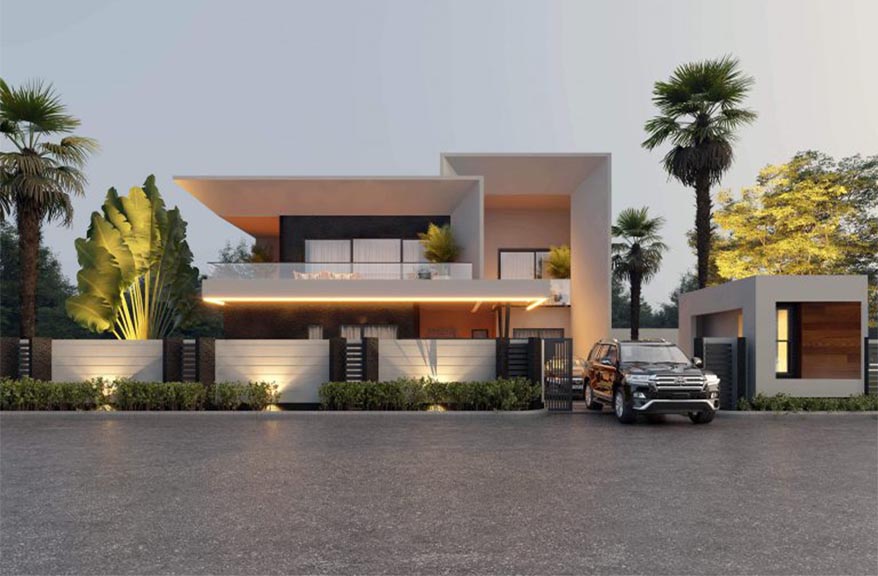
To The Balcony…The Hidden Perspective
At Spektra, we know a balcony when we see one.
Webster’s Dictionary defines it as a platform that projects from the wall of a building. Functional. Enclosed. Measurable. But what if we told you the true essence of a balcony can’t be fully captured by bricks, beams or the neat lines of a blueprint?
Interesting, isn’t it? That even the most trusted definitions fail to mention what might be the balcony’s most powerful trait: perspective.
William Ury, co-founder of Harvard’s Program on Negotiation and a veteran of international peace talks, certainly sees more. In his TED Talk, he introduces the “third side” of every conflict not just “us vs. them,” but the silent majority that surrounds the friction: families, colleagues, communities, bystanders.
This “third side,” Ury says, helps us go to the balcony a space of clarity above the emotional noise. A place where we can observe, reflect and choose better responses.
At first glance, it sounds lofty idealistic, even. But Ury’s optimism is grounded in science and human history. He stands with Jane Goodall and a host of neuroscientists in reminding us that cooperation is hardwired into our very species. Even amid conflict, peace is not only imaginable, it is possible.
Think of Juliet leaning out into the moonlight, a royal wave from Buckingham Palace or a quiet morning in Lima with the sea spread out below. The balcony is not just a slab of concrete or steel, it is a threshold of vision, a perch from which we can see differently, more clearly and often more wisely.
Here’s where his metaphor touches solid ground
Spektra designs balconies with this in mind. Not just for aesthetic charm or property value (though they add plenty of that), but because they offer a rare moment of elevation, physically and mentally. They remind us that stepping back and rising above can reveal what ground-level cannot.
Renowned negotiator William Ury, in Getting to Yes, offers a third definition: the mental balcony. In tense meetings, fast-paced deadlines or team disagreements, he suggests we take a moment to step back not out of the building, but out of the heat of emotion. From that inner balcony, we gain perspective, clarity and a view of the bigger picture. We respond with intention rather than reaction.
Whether in brick or in mindset, the balcony is not just for the privileged few. It's for anyone willing to rise above the noise and look with new eyes.
So next time you're in a tense meeting, on a deadline or in disagreement, pause.
Ask yourself: Where’s my balcony?
We build them every day. Not just in our architecture but in the way we lead, negotiate, and live.
So here’s a thought:
In design, in leadership, and in life, Where is your balcony? Are you making time to step onto it?





